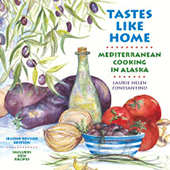As families gather to celebrate Thanksgiving, there’s peace within American borders. Others in the world aren’t so blessed.
In the Middle East, religious and ethnic differences contribute to seemingly intractable political conflicts. So it is now, and so it was in the first decades of the twentieth century, and so it has been throughout recorded history.
For hundreds of years before World War I, Ottoman Turks controlled the Eastern Mediterranean. By the end of that war, the Ottoman Empire was partitioned into many of the Middle Eastern lands whose names we recognize today, including Turkey, Syria, Lebanon, Jordan, Palestine, Saudi Arabia, and Iraq.
After World War I ended, active conflicts between Greece and Turkey continued until 1923, when each country adopted the Treaty of Lausanne. One of the Treaty’s provisions required a population exchange: Turkey expelled most of its citizens who were Greek Orthodox, as Greece did its Muslim citizens.
Two million people were instantly turned into refugees, forced from countries where their families had lived for generations. Regional stability was realized, but individual Greeks and Turks involuntarily paid the price to achieve it.
In 1905, half the population of Kirk-Killisseh (Saranda Ecclessias in Greek), a Turkish town in Eastern Thrace, was Greek Orthodox. Because of the Treaty, Greeks residents of Saranda Ecclessias were banished from their ancestral homes. Some came to the United States, bringing with them their religion, their culture, and their cuisine.
On holidays and other special occasions, most of us want the familiar foods of our childhoods. So it was with Greeks who abruptly left Saranda Ecclessias in the 1920s. On Thanksgiving, the most American of holidays, they combined turkey with Toursi and Cinnamon-Scented Rice Pilaf, a dish redolent with the smells and flavors of their former homes in Eastern Thrace.
Evanthia Valassiades described the dish in A Festival of Recipes: A Collection of Recipes from the Annunciation Greek Orthodox Church in Dayton, Ohio: “This combination may sound unusual but it is really wonderful. Families from Saranta Ecclessias enjoy this meal at Thanksgiving. The stuffing and sauerkraut portions would be doubled for turkey. We don’t stuff the turkey, but bake the rice accompaniment separately.”





